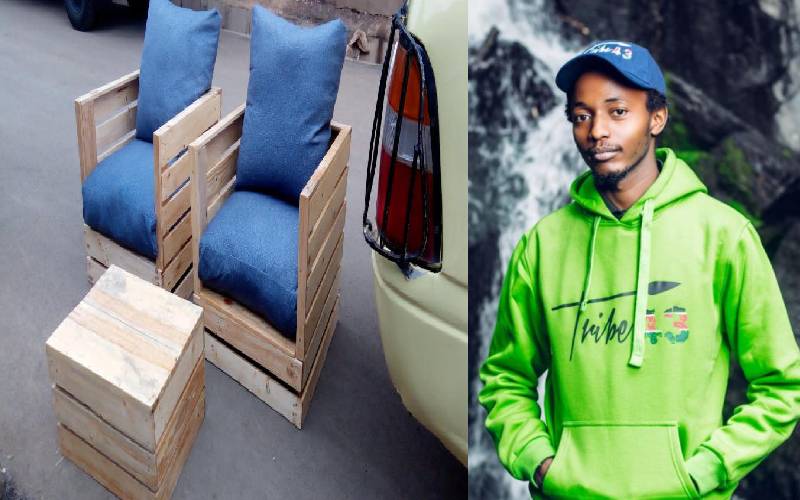×
The Standard e-Paper
Home To Bold Columnists

Brian Irungu and a sample of the wooden pallets.
Simple as they might look, wooden pallets play a key role in the global supply chain. They are used for shipping goods as they protect them from damage. Goods stacked on wooden pallets can also be moved easily by machines such as forklifts.







